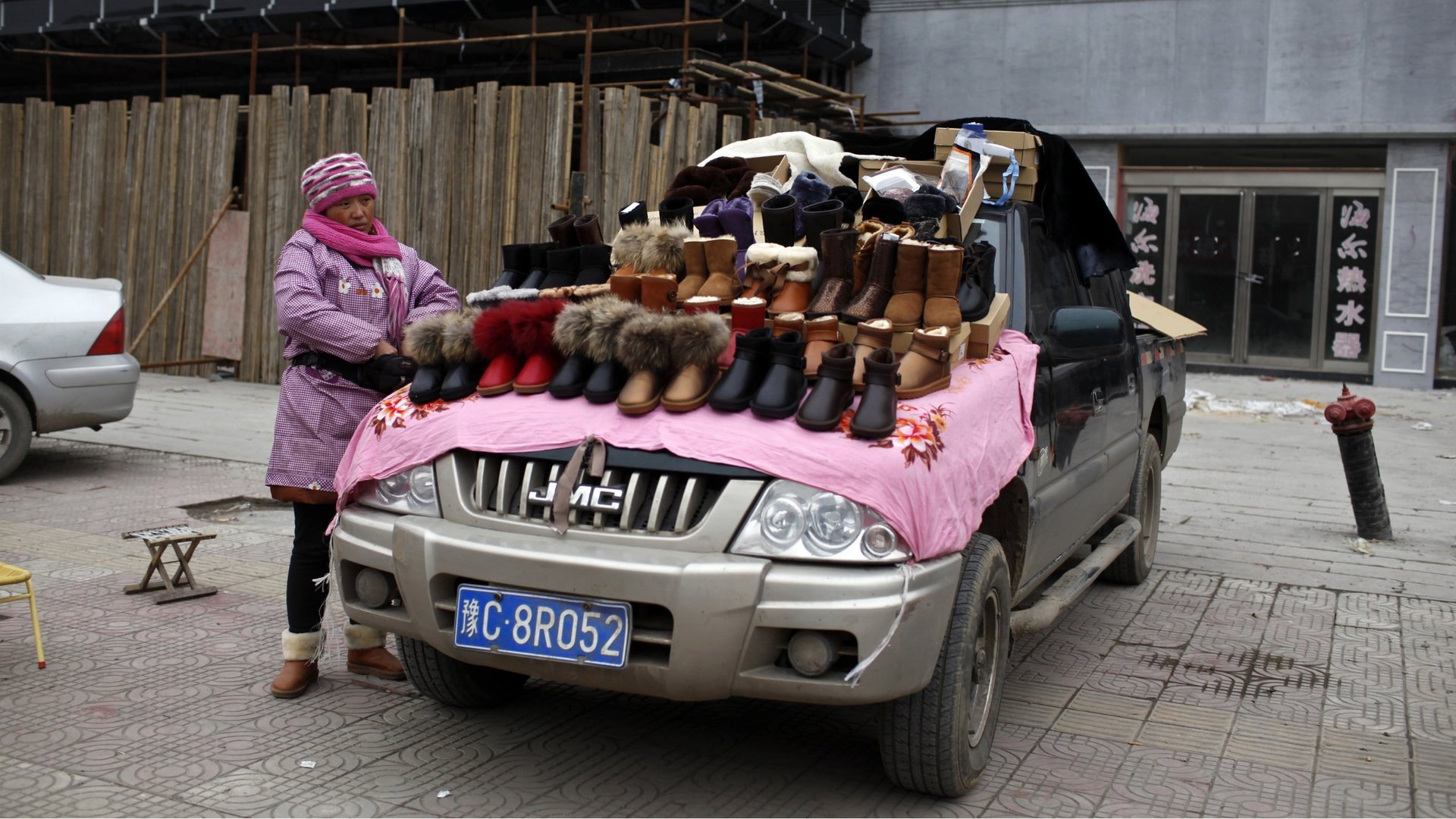China’s retail slump is deepening. And that’s bad news for China’s leaders
Here’s a less-than-positive sign for the pace of China’s economic reforms. The number of Hong Kong-listed companies issuing profit warnings (paywall) has ticked steadily higher over the last three months. And the industry issuing the most of those alerts is very same sector Chinese economic planners want to bolster: discretionary consumer goods.


Here’s a less-than-positive sign for the pace of China’s economic reforms. The number of Hong Kong-listed companies issuing profit warnings (paywall) has ticked steadily higher over the last three months. And the industry issuing the most of those alerts is very same sector Chinese economic planners want to bolster: discretionary consumer goods.
The struggling Hong Kong-listed retailers range from shoemaker Daphne International to liquor retailer Silver Base and sports goods makers like Win Hanverky, Eagle Nice and Peak Sport Products. All of their main markets are China, suggesting that retail sales are slowing across the board.
That’s showing up in official data too. In the first half of 2013, retail sales grew 11.4% on the previous year, compared with more than 13% a year earlier.
This isn’t exactly what the Chinese government has in mind. For years, the stated goal of its economic policies has been boosting consumer spending. The idea is that consumption would fuel growth more sustainably than investment, the current driver. The Chinese economy would also be less vulnerable to external shocks. And retail is more environmentally friendly than manufacturing.
Recent reforms to loosen people’s purse strings include expanding small towns—it’s believed that urban residents spend more—and improving social welfare so that the Chinese save less, and spend more.
That may be having some effect, at least in spirit. Even as China’s GDP growth falters, a reading of consumer confidence between April and June was up from the previous month, at 110, which signals consumer optimism.
Yet growth in disposable income is slowing. Though average disposable was up 6.5% for urban residents, at about 13,649 renminbi ($2,200), it fell slightly compared with the average for the first quarter, according to China’s National Bureau of Statistics.
Instead, both potential shoppers and retailers are constrained. Consumer finance and consumer protection services are weak in China. For retailers, the cost of logistics is high in China, almost twice that of developed countries (paywall), according to Li & Fung Research Centre. And commercial rent is still expensive, even though the government has tried to bring down property prices.
The scary takeaway from all of this is that a slowdown in consumer spending could dent resolve among China’s top echelons to continue uncomfortable reforms that mean slower growth in the short-term. After explaining yesterday that the growth below 7% for the year “is not allowed” (paywall), Chinese leaders unveiled a mini-stimulus package.